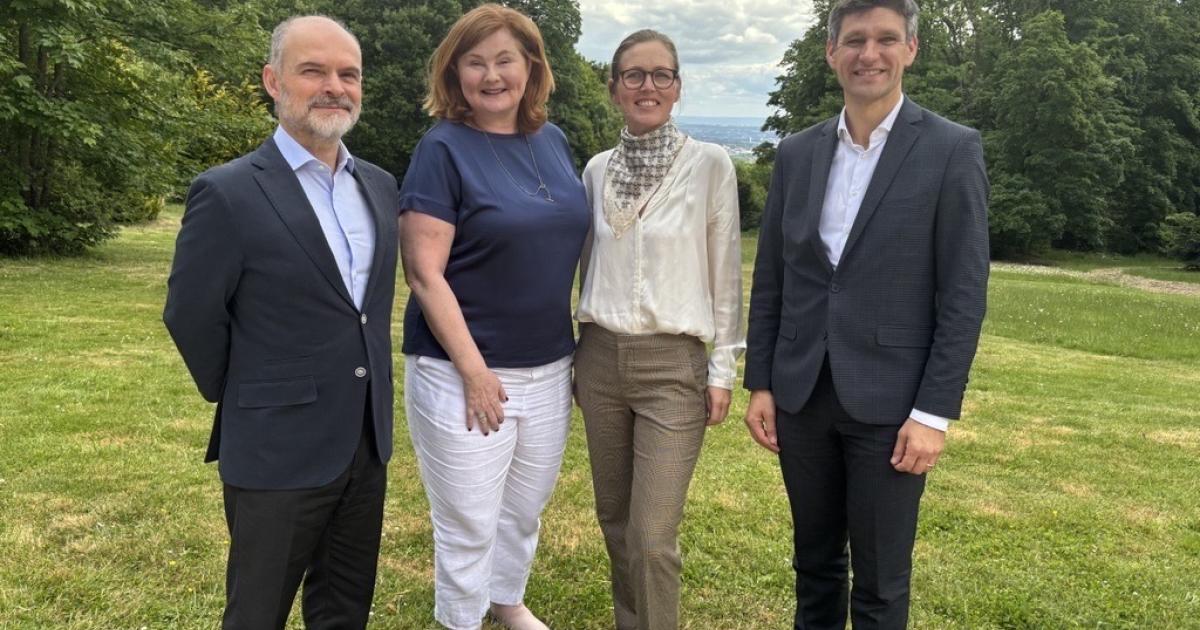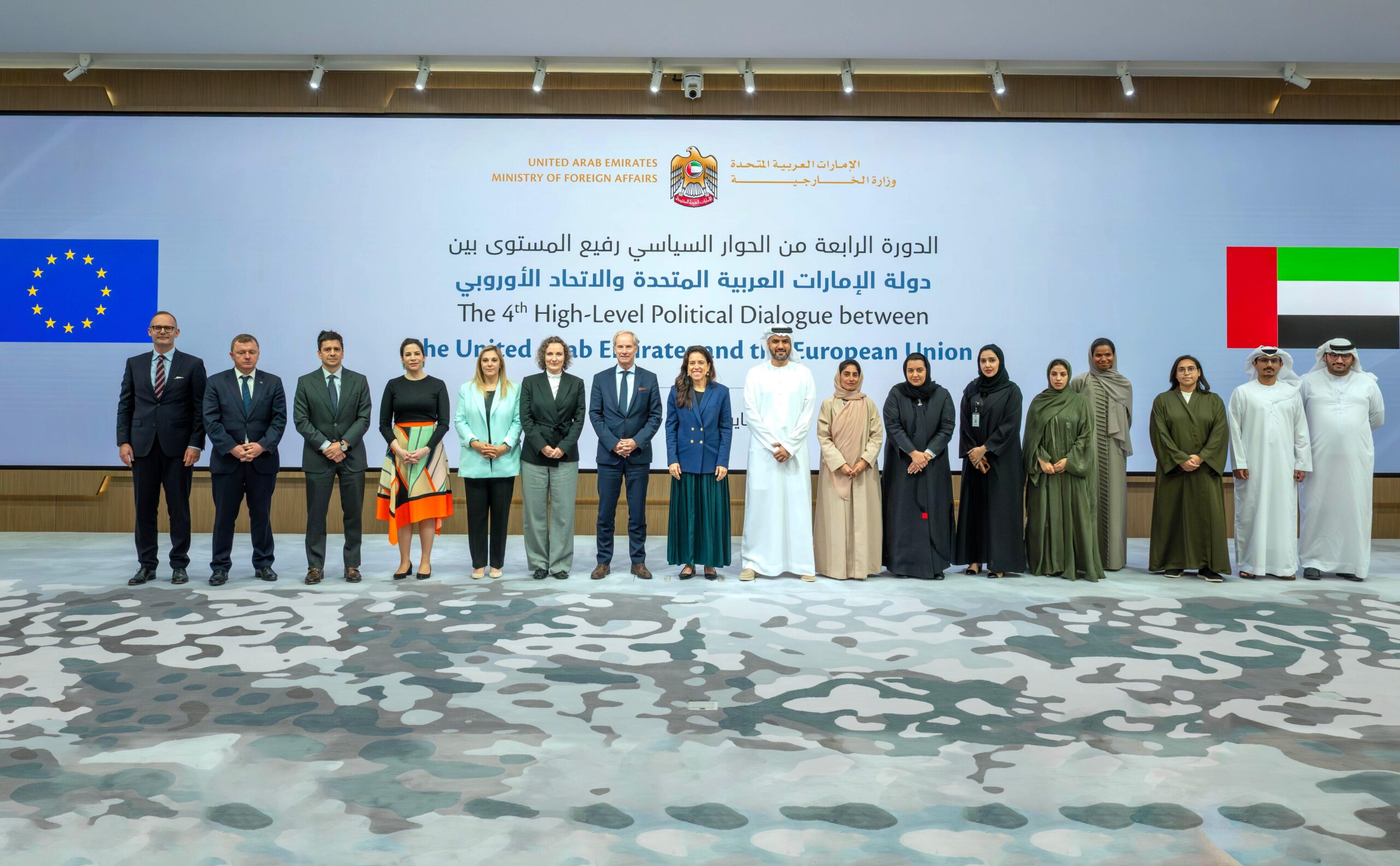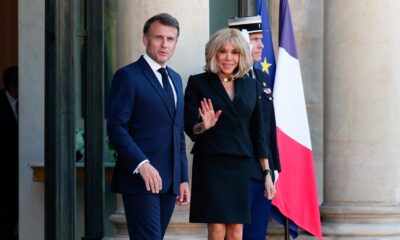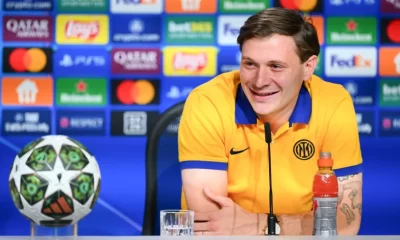Politics
EU Turns Its Gaze on the Porn Giants: Brussels Launches Landmark Investigation to Shield Minors Online

In a decisive move that could redefine the boundaries of digital responsibility, the European Commission has launched formal proceedings against four of the world’s largest pornographic websites—Pornhub, Stripchat, XNXX, and XVideos—for suspected violations of the Digital Services Act (DSA). The crackdown marks a watershed moment in the EU’s mission to forge a safer digital landscape for children.
Citing serious concerns over the absence of effective age verification systems, the Commission suspects that these adult platforms have failed to put in place “appropriate and proportionate measures” to protect minors from harmful content. These include robust systems to shield underage users from explicit material and strategies to mitigate potential harm to children’s mental and physical well-being.
“The online space should be a safe environment for children to learn and connect,” declared Henna Virkkunen, Executive Vice-President for Tech Sovereignty, Security and Democracy.
“Our priority is to protect minors and allow them to navigate safely online. Together with the Digital Services Coordinators in the Member States, we are determined to tackle any potential harm to young online users.”
The First Strike Under a New Law
The DSA, heralded as one of the most ambitious regulatory undertakings in recent years, empowers the European Union to demand accountability from digital platforms. Today’s move against these online titans is the first formal probe under the DSA explicitly aimed at safeguarding children from adult content.
According to the Commission, its preliminary findings reveal systemic shortcomings: a lack of reliable age-verification tools, inadequate risk assessments, and the failure to prioritize child safety in platform design. If confirmed, these breaches could lead to stiff penalties and legally binding corrective measures.
The opening of formal proceedings enables the EU to escalate enforcement actions—ranging from the imposition of interim measures to non-compliance decisions. Platforms could also propose commitments to address the violations, which the Commission may accept.
Stripchat Loses “Very Large Platform” Status
In a parallel but significant development, the Commission announced the de-designation of Stripchat as a Very Large Online Platform (VLOP), after it fell below the 45 million monthly active user threshold for over a year. The site now exits the high-regulation VLOP category, but this doesn’t exempt it from DSA obligations. Stripchat will remain under the scrutiny of Cyprus’ Digital Services Coordinator.
The timing of this de-designation has raised eyebrows among some digital policy observers, as it occurs in tandem with the broader investigation. Yet, Commission officials stress that the procedural outcome follows strict metrics and a request initiated by Stripchat itself.
Coordinated Action Across the Continent
While the Commission focuses its firepower on the biggest players, a coalition of EU Member States—acting through the European Board for Digital Services—has launched a coordinated sweep against smaller pornographic platforms. These fall under the jurisdiction of national Digital Services Coordinators, ensuring the DSA’s teeth bite uniformly across borders.
Together, these actions form an unprecedented EU-wide offensive to combat the growing threat of unsupervised youth exposure to online pornography, reinforcing the principle that child safety online is not optional—it’s an obligation.
Looking Ahead: A Digital Shield for Europe’s Children
The road forward is both technical and philosophical. Beyond legal proceedings, the Commission is developing a white-label age verification app, due this summer, as a bridge until the EU Digital Wallet is operational in 2026. Built to verify users’ age without compromising their identity, the app represents a privacy-first model for digital safety.
This initiative is backed by a public consultation launched on May 12, with draft guidelines urging platforms to proactively adopt child protection mechanisms. These include the use of age estimation technologies, smarter content gating, and enhanced design standards that prioritize the rights of the child.
A Turning Point for Digital Accountability
While the outcome of the investigations remains open, the message from Brussels is clear: the era of unregulated online adult content is ending. The DSA, once just legislative promise, is now a living instrument of enforcement. And the Commission is wielding it with conviction.
In the past, efforts to regulate online pornography often met with inertia, complexity, or political hesitancy. But today, Europe takes a stand—not against the existence of adult content, but against a system that too easily exposes the vulnerable to harm.
If successful, this legal assault on digital indifference may become a milestone moment in Europe’s pursuit of a digital future that is not only free—but safe.
The Commission has opened investigations against 4 large pornographic platforms for suspected breaches of its digital services rules. EU countries are also taking action against smaller pornographic platforms. This will reinforce the EU’s effort to protect minors from harmful content online.
Source link
Politics
Eyes in the Sky: Europe Doubles Down on Satellite Data to Safeguard the Future

In a decisive stride toward bolstering European resilience and crisis readiness, the EU Council today adopted groundbreaking conclusions that place Earth observation and satellite data at the center of civil protection and crisis management across the Union. Behind the closed doors of Brussels, amid mounting environmental disasters, geopolitical instability, and an accelerating climate crisis, ministers made clear: Europe’s security will be safeguarded, in part, from space.
“Space technology is becoming an important pillar of Europe’s security,” said Michał Baranowski, Undersecretary of State at Poland’s Ministry of Economic Development and Technology. “Ensuring real-time, secure, and reliable access to satellite data is essential.”
Baranowski’s words echo throughout a document that might well shape the continent’s technological destiny. The Council’s conclusions call for the full harnessing of Earth observation constellations like Copernicus, blending data from public, private, and commercial sources. This united satellite front, bolstered by artificial intelligence and cyber-secure infrastructures, is envisioned as the keystone of Europe’s response to natural disasters, pandemics, migration flows, wildfires, pollution, and other cascading crises.
Space Data: Europe’s Second Nervous System
Earth observation satellites orbiting silently above Europe now hold the key to anticipating and managing tomorrow’s disasters. From tracking wildfire paths in southern France to predicting crop failure in Romania, or detecting early signs of flooding along the Rhine, these “eyes in the sky” offer a near-infinite stream of high-resolution, real-time data.
Yet, quantity is not enough. The Council’s message is unequivocal: Europe must process better, act faster, and cooperate deeper. This means not just gathering data—but turning it into decisions. To that end, the integration of artificial intelligence becomes indispensable. AI will be tasked with filtering the ocean of satellite input, detecting anomalies invisible to the human eye, and feeding rapid-response systems capable of guiding both national authorities and first responders.
Crisis Prediction in the Age of AI
The Council’s conclusions elevate AI from a technological novelty to a strategic necessity. When woven into satellite-based systems, AI can decipher environmental shifts, model cascading crisis scenarios, and generate predictive alerts. From land degradation and water scarcity to viral outbreaks and geopolitical hotspots, the ability to forecast is no longer science fiction—it is emerging science policy.
But this newfound power demands responsibility. The document calls for full adherence to Europe’s evolving AI regulatory framework, including the AI Act, to ensure that decisions impacting lives are explainable, trustworthy, and secure.
A Fortress in Orbit
As Earth becomes more vulnerable, so do the systems watching over it. Today’s conclusions underscore the importance of protecting satellite data and infrastructure from a rising tide of cyber threats. This is no abstract concern. European and international intelligence agencies have long warned of espionage, sabotage, and cyber intrusions targeting space-based assets.
In response, the Council recommends strong encryption, continuous monitoring, and coordination across national and European cybersecurity bodies to shield the digital lifeblood of satellite operations.
A Whole-of-Europe Approach
The Council’s strategy is more than a policy blueprint—it is a call for union-wide synergy. It urges integration of all existing and future satellite systems, harmonization of data standards, and open cooperation between governments, academia, and industry. Small and medium enterprises (SMEs), often the innovation engines of Europe, are expected to play a pivotal role in developing tools and applications that make satellite data actionable on the ground.
This forward-leaning approach builds upon a series of landmark Council decisions over the past four years—from the 2021 “New Space for People” resolution to last year’s evaluation of the EU Space Programme. Each milestone has added gravity to Europe’s space ambitions. Now, with these 2025 conclusions, the EU crosses a threshold: from recognizing the promise of space, to relying on it for continental security and survival.
The Horizon Ahead
As climate stress multiplies and crises compound, the Council’s vision is clear: Earth observation satellites are not just instruments of science, but instruments of sovereignty. The ability to foresee, react, and adapt to threats—whether meteorological or geopolitical—depends on Europe’s command of the data flowing from its orbital fleet.
“By fostering collaboration,” Baranowski said, “we can create the conditions for stronger security and technological leadership.”
From the command centers of Paris and Warsaw to innovation labs in Tallinn and Lisbon, Europe now faces the task of turning satellite intelligence into real-world action—at the speed of crisis. The sky may no longer be the limit. For Europe, it may be the last line of defense.
Council adopts conclusions on the use of satellite data, in particular from Earth Observation constellations, for civil protection and crisis management.
Source link
Politics
AMLA Executive Board Members Appointed


© FRVS+MPCP 2022. The European Times® News is registered as an EU Trademark. All rights reserved. The European Times® and the logo of The European Times® are EU trademarks registered by FRVS+MPCP.
Members/Partners of

About Us
Popular Category
DISCLAIMER OPINIONS: The opinions of the authors or reproduced in the articles are the ones of those stating them and it is their own responsibility. Should you find any incorrections you can always contact the newsdesk to seek a correction or right of replay.
DISCLAIMER TRANSLATIONS: All articles in this site are published in English. The translated versions are done through an automated process known as neural translations. If in doubt, always refer to the original article. Thank you for understanding.
DISCLAIMER PHOTOS: We mostly used photos images that are readily available online, from free sources, or from the people promoting the news. If by any chance it happens that we have used one of your copyrighted photos, please do not hesitate to contact us and we will take it down without question. We do not make profits as this is a not for profit project to give voice to the voiceless while giving them a platform to be informed also of general news, and it is completely free.
Editor Picks
Politics
EU and UAE Deepen Strategic Ties as Fourth High-Level Political Dialogue Concludes in Abu Dhabi

ABU DHABI — In a significant step toward strengthening diplomatic and economic cooperation between Europe and the Gulf, the European Union and the United Arab Emirates concluded their Fourth High-Level Political Dialogue on Monday in Abu Dhabi. The talks marked a turning point in bilateral relations, with both sides agreeing to intensify collaboration not only through trade but also on pressing regional and global security issues.
Co-chaired by Deputy Secretary-General of the European External Action Service for Political Affairs Olof Skoog and H.E. Lana Nusseibeh , Assistant Minister for Political Affairs and the Foreign Minister’s Envoy for the EU, the dialogue underscored the growing strategic alignment between the two partners amid shifting global dynamics.
One of the most anticipated outcomes of the meeting was the landmark announcement of the launch of free trade negotiations between the EU and the UAE — a move that promises to deepen economic integration and boost investment flows between the regions. Officials described the decision as a “win-win” for both parties, reflecting shared interests in stability, innovation, and sustainable development.
“The EU-UAE partnership is more than just diplomacy,” said Skoog in a joint press statement. “It’s about building resilience together — economically, politically, and regionally.”
Toward a Strategic Partnership Agreement
Beyond trade, both sides expressed strong support for elevating the relationship through the conclusion of a EU-UAE Strategic Partnership Agreement , which would institutionalize cooperation across a broad spectrum of issues. Such an agreement would allow for greater coordination on foreign policy, defense, energy transition, climate action, and technological innovation.
The dialogue also reaffirmed the importance of multilateral engagement, with both parties emphasizing the need to uphold international law and work together within global institutions such as the United Nations and the G20.
Addressing Regional Challenges
In a wide-ranging discussion on regional affairs, EU and UAE officials exchanged views on several conflict zones and volatile situations:
- Gaza : Both sides called for an immediate cessation of hostilities, the release of hostages, and urgent humanitarian aid access.
- Lebanon and Syria : Concerns were raised over the ongoing political instability and the humanitarian toll of protracted crises.
- Iran and Yemen : Participants emphasized the need for de-escalation and inclusive political solutions to reduce tensions and promote regional security.
- Red Sea Security : With rising maritime threats, both parties agreed on the importance of safeguarding vital shipping routes and coordinating naval efforts.
- Sudan : The EU and UAE reiterated their calls for an end to violence and a return to civilian-led governance.
- Ukraine : The EU welcomed the UAE’s continued diplomatic engagement on the issue, while reaffirming its stance against Russia’s aggression.
Strengthening EU-GCC Cooperation
Looking ahead, the EU and UAE also discussed ways to deepen EU-Gulf Cooperation Council (GCC) ties , particularly in light of the upcoming UAE presidency of the GCC later this year. This follows up on commitments made during the October 2024 EU-GCC Summit in Brussels , where leaders from both regions pledged closer collaboration on energy, trade, and regional security.
The dialogue concluded with a shared commitment to continue fostering trust and cooperation, not only between the EU and UAE, but also in support of broader regional stability and prosperity.
As the world faces unprecedented geopolitical challenges, the deepening EU-UAE partnership may serve as a crucial bridge between East and West — one built not only on shared interests, but on shared values.
United Arab Emirates: 4th High-level Political Dialogue held in Abu Dhabi on 27 May
Source link
-

 EU & the World6 days ago
EU & the World6 days agoArabella Stanton: 5 Things to Know About the Actress Playing Hermione
-

 EU & the World6 days ago
EU & the World6 days agoWho Is Mary Lou Retton? About the Olympic Gymnast
-

 EU & the World5 days ago
EU & the World5 days agoWhat Is Kevin Costner’s Net Worth? How Much the Actor Makes
-

 EU & the World5 days ago
EU & the World5 days ago‘Survivor’ Season 50 Cast: See Which Stars Are Competing
-

 EU & the World6 days ago
EU & the World6 days agoDoes Emmanuel Macron Have Children With Wife Brigitte?
-

 EU & the World5 days ago
EU & the World5 days agoTodd Chrisley’s Kids: Everything To Know About The 5 Children He Shares With Julie
-

 Sports6 days ago
Sports6 days agoTurin, Paolo Vanoli to say goodbye. Among possible replacements a surprising name
-

 Sports3 days ago
Sports3 days agoPSG-Inter, Nicolò Barella jokes about Gianluigi Donnarumma








